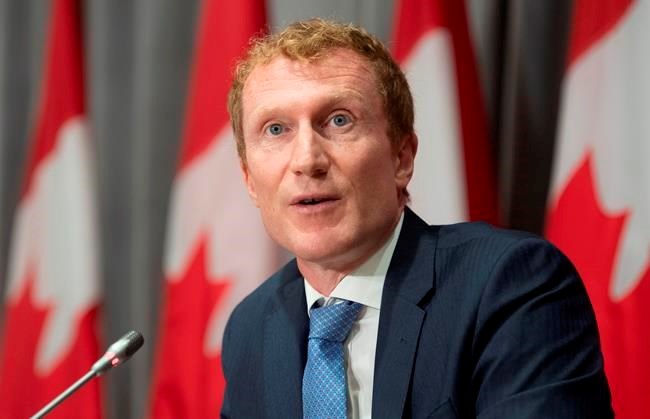OTTAWA — The federal government is pledging $82.5 million to improve access and address growing demand for mental health services in Indigenous communities during the COVID-19 pandemic.
Access to many mental health services within Indigenous communities have been disrupted due to the pandemic, while some services have shifted to virtual and telehealth treatment options, creating obstacles for those living in remote communities that have limited connectivity.
Meanwhile, demand for services has surged.
In the first four months of this year, the Hope for Wellness Help Line, which provides telephone and online support for First Nations, Inuit and Metis in a number of Indigenous languages, received over 10,000 calls and chats from people seeking crisis intervention services.
This represents a 178 per cent increase in demand compared to the same time period in 2019.
Also, the First Nations Health Authority in B.C. reported last month that First Nations overdose deaths almost doubled between January and May of this year.
Indigenous Services Minister Marc Miller acknowledged Tuesday that a disparity exists between mental wellness support available to Indigenous and non-Indigenous people in Canada and called this situation unacceptable.
"The COVID-19 pandemic has only exacerbated the situation," Miller said.
"Sustained, targeted investment is needed to ensure that culturally safe mental wellness services remain available and community-driven, culturally appropriate and timely mental health supports are critical to the well-being for anyone struggling to cope with the added stress and anxiety that the COVID-19 pandemic has created."
The new federal funding will support access to additional services, such as transitioning some services to virtual platforms to meet increased demand.
It will also support Indigenous partners in developing new ways to address substance use and to improve access to treatment and it will work to expand access to culturally appropriate services such as on-the-land activities, community-based health supports and mental wellness teams.
The new funds are a response to calls from many First Nations, Inuit and Metis leaders who have been pushing for more mental health supports in their communities, Miller said.
Intergenerational trauma suffered by many Indigenous people due to Canada's history of colonialism and mistreatment of Canada's First Peoples is already a deeply difficult issue to address when it comes to mental health treatment, said Dr. Tom Wong, chief medical officer of public health for Indigenous Services Canada
The additional anxiety of the COVID-19 pandemic has only made things worse, he said.
The negative effects of COVID-19 physical distancing restrictions have also led to increased rates of family violence against women and have also caused further isolation of Indigenous youth and those in the LGBTQ+ and two-spirit communities.
"We all need to be standing behind First Nations, Metis and Inuit in responding to the mental wellness, mental health crisis in Canada. It is extremely important that we stand behind them so that no communities are left behind," Wong said.
Funding will be allocated to First Nations, Inuit and Metis communities based on discussions among national and regional partnership tables or regional governing leaders.
There will also be some funds remaining to enable surge capacity and adaptation among national organizations and services, such as the Thunderbird Partnership Foundation, First Peoples Wellness Circle and Hope for Wellness Line.
This report by The Canadian Press was first published Aug. 25, 2020.
Teresa Wright, The Canadian Press



